30 British quirks that BAFFLE tourists
The British things that stump tourists

pisaphotography/Shutterstock
Britain is a small isle but it has no shortage of quirks, many of which baffle foreign visitors.
From weird and wonderful festivals to the nation's obsession with the weather, we've picked 30 things that stump tourists visiting Britain.
The concept of Britain vs the UK
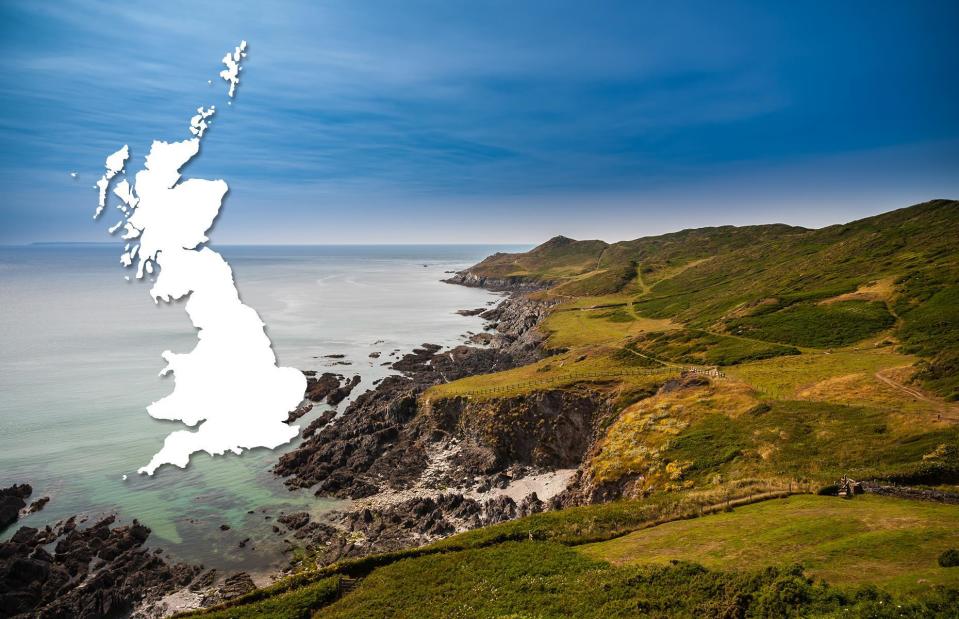
Hugh O'Connor/Shutterstock
This one bewilders even the Brits themselves, so don't worry if you find yourself stumped. While often used interchangeably, ‘Britain’ and ‘the UK’ denote two different things. Britain signifies England, Scotland and Wales, while the United Kingdom (the UK) encompasses those three nations plus Northern Ireland. Just to confuse things even more, the 'British Isles' or 'these islands' is a geographical term that encompasses the UK and the Republic of Ireland.
The obsession with queueing
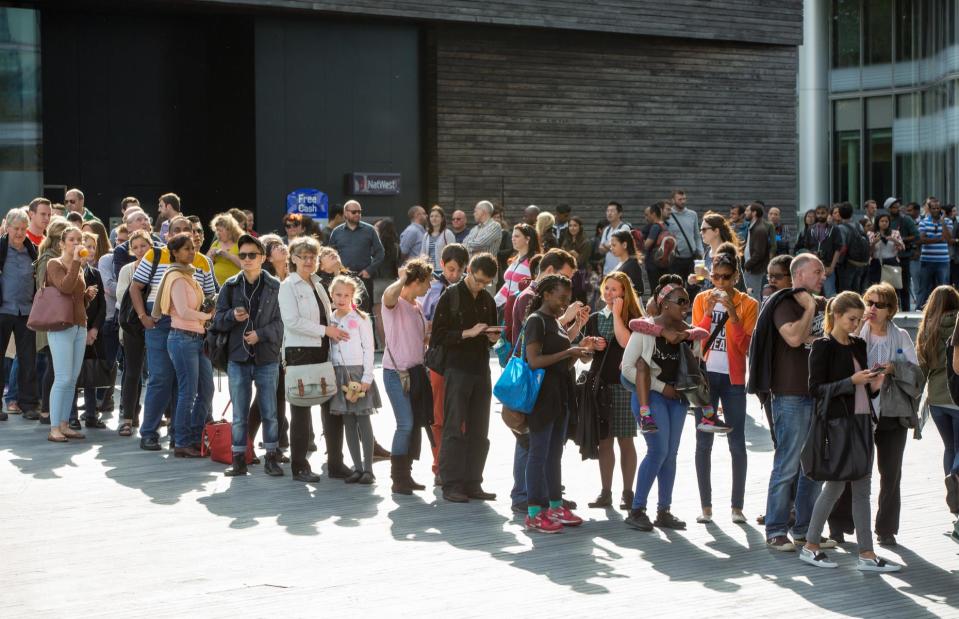
IR Stone/Shutterstock
No other nation queues quite like the British. Ordered, unswerving and single file, British queues can confuse the foreign holidaymaker. Beware though, Brits don’t take kindly to those who jump ahead, so you’d be wise to toe the line. Whistle, huff, tap your foot if you must, but don’t cut in at any cost. Want the ultimate British queuing experience? Join the back of the line at Wimbledon.
Excessive politeness
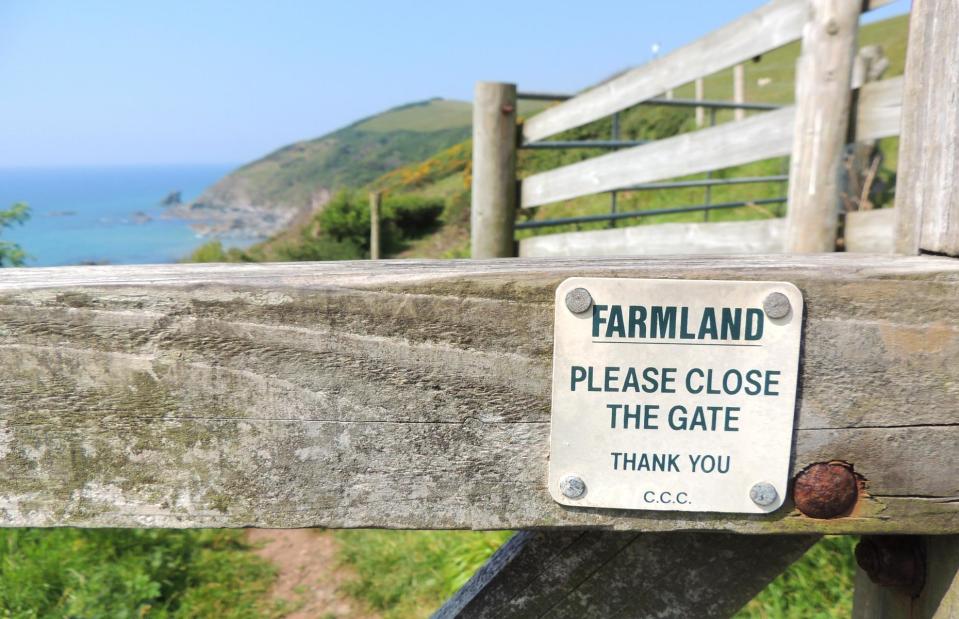
Giles Kent/Shutterstock
The amount of times a blustering Brit can stuff the words “please”, “thank you” or “sorry” into a single sentence is quite alarming. To some, this hyperbolic show of politeness might feel overwhelming, especially if these words have different nuances in the visitor’s home country. Know, though, that the over-courteous Brit means no offence.
The many uses of the word ‘sorry’
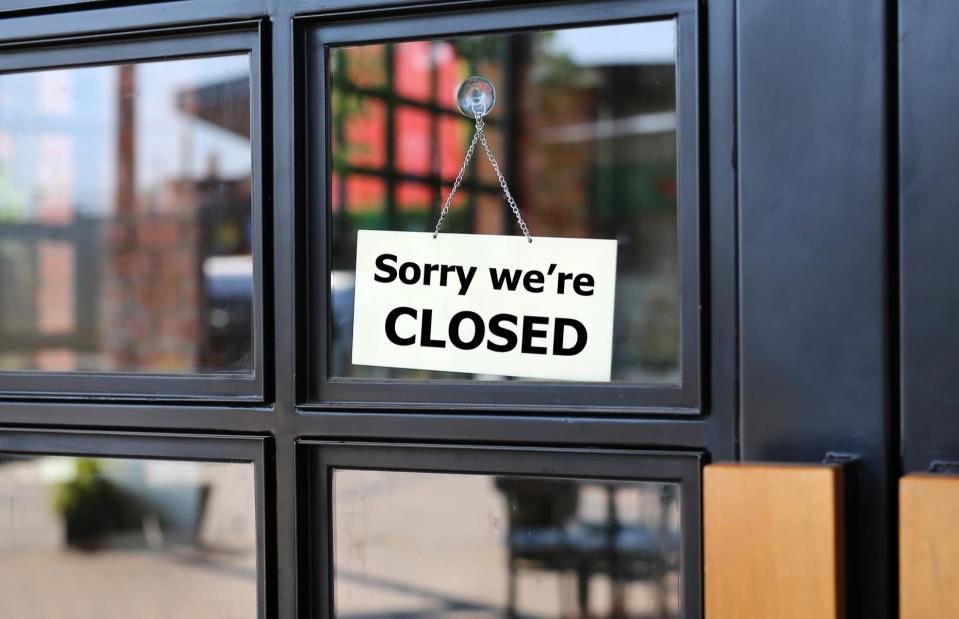
GOLFX/Shutterstock
Sorry is a fickle word and when uttered by a Brit, it can mean any manner of things. It can be a straightforward apology but it can also be a request that you repeat yourself, the words that come before a rebuttal, a way to strike up conversation or a polite plea for you to move out of the way. Judge the situation and respond with confidence.
The weather

NotarYES/Shutterstock
It was sunny this morning but now the sky is grey and brooding. Next, rain will clatter onto pavements and Brits will scatter towards cafes and shops, stooped and muttering. British weather can change in an instant so whenever you visit, come prepared for all seasons.
And the amount Brits talk about the weather
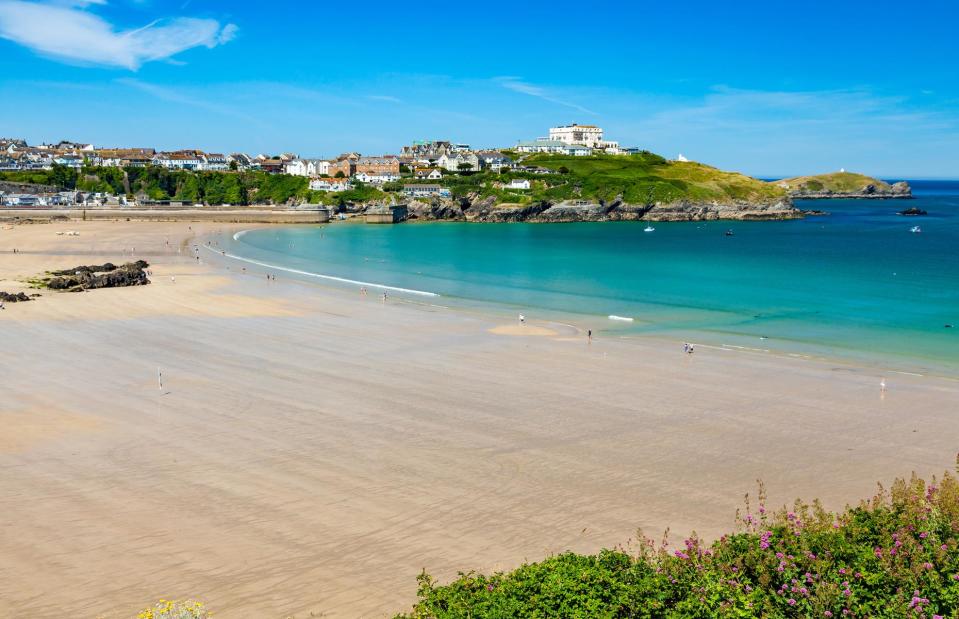
Ian Woolcock/Shutterstock
It’s no surprise, then, that Brits love to talk about the weather. Whether marvelling at a heatwave or bemoaning the rain, the weather and its whims will eat up huge portions of your exchange with any British person. If you feel your eyes glaze over, just nod, smile and offer a change of subject... but the conversation will no doubt circle back.
The greetings

g-stockstudio/Shutterstock
One greeting that always puzzles the foreign visitor is “You alright?”. Contrary to the obvious, it's not an enquiry about your well-being. A simple answer of “Yes, you?” will complete the exchange.
Driving on the left
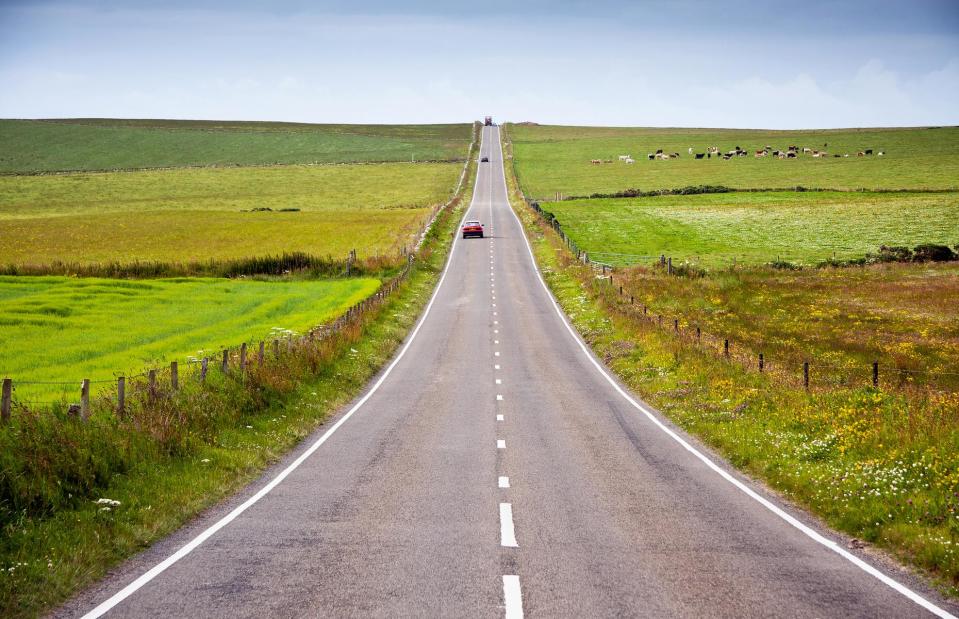
duchy/Shutterstock
Britain is one of a handful of countries that drive on the left (Australia, Malta and Japan are others, in case you wondered). This can make for a trying drive if you’re used to riding on the right but Britain’s beautiful back roads and country lanes are worth the white knuckles so buckle up and keep your wits about you.
The love of tea
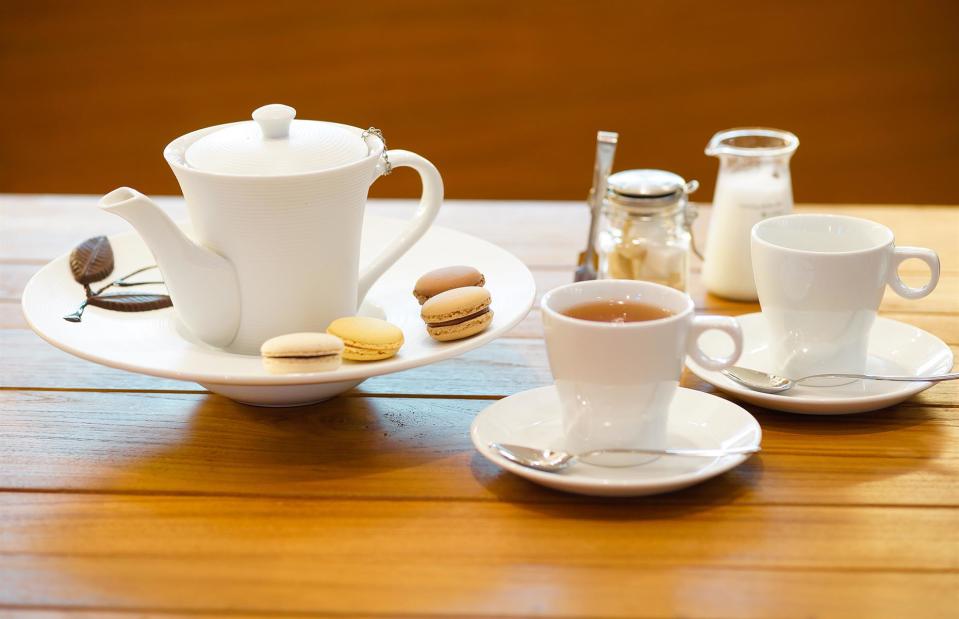
Kriengkrai Waiyakij/Shutterstock
Tea is not so much a drink as a social tool. It’s offered in times of need, sadness and joy. Brits are now guzzling just as much coffee but tea will always hold a special place in the national consciousness. Learn how you like an English breakfast tea best (perhaps white with no sugar, or black with two?), and drink plenty of the stuff before you head back home.
The London Underground
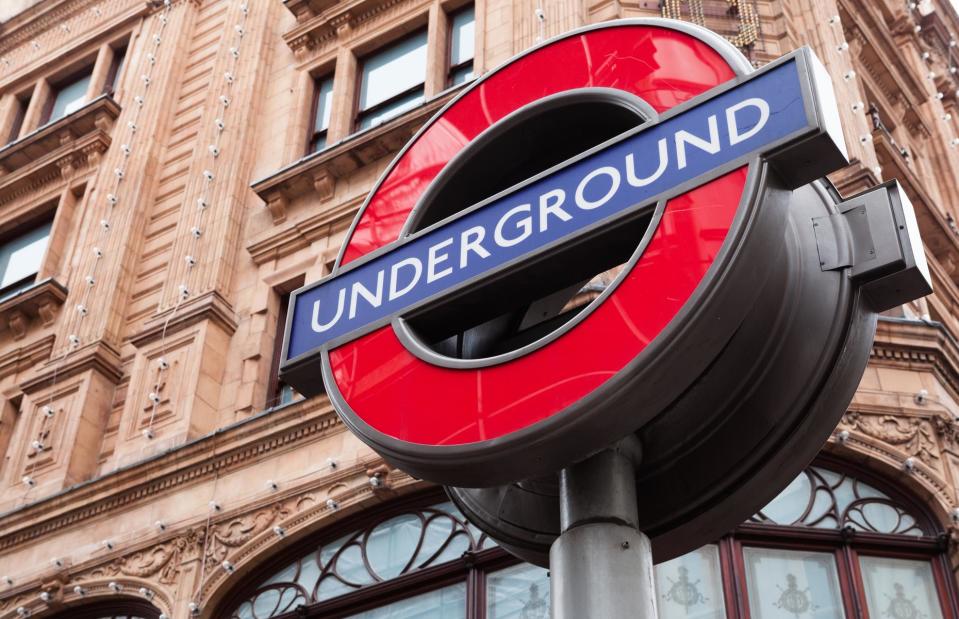
sematadesign/Shutterstock
In England's capital, Londoners have a love-hate relationship with their subway system (also known as 'the tube'). They’ll likely lament its stuffy carriages and line closures, but jump to its defence if a visiting individual should do the same. The labyrinthine underground stations and squiggling map can cause problems for tourists, but have patience, seek assistance and you’ll arrive at your destination.
Escalator etiquette
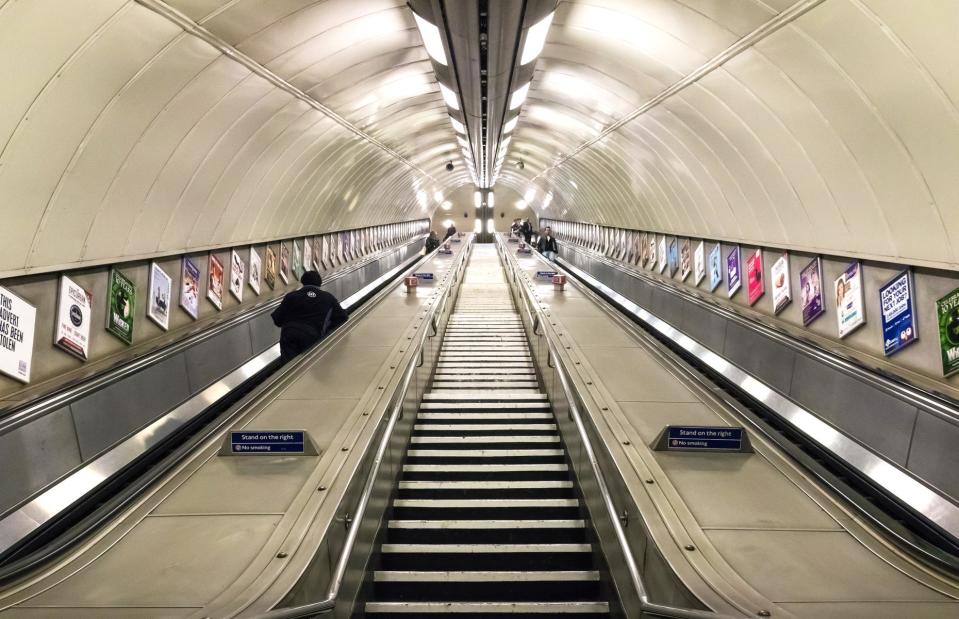
I Wei Huang/Shutterstock
Second only to queuing, escalator decorum is taken extremely seriously by the Brits. Stay on the right-hand side if you're standing and move to the left if you're walking up or down. If you loiter too far to the left, expect an elbow in your hip or a seething “excuse me” in your ear. This protocol is clearly signposted should you need an extra reminder.
Separate taps for hot and cold water
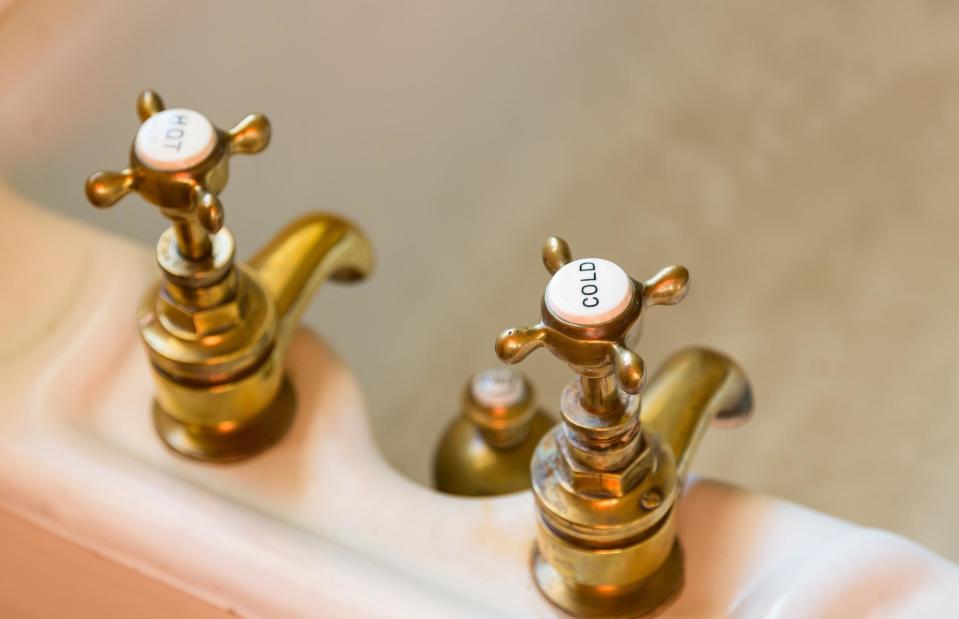
Steve Heap/Shutterstock
Most countries have a singular faucet for their water but British bathrooms have separate taps for hot and cold. This concept dates back to after the Second World War when houses were built with a water storage tank in the attic – hot water is supplied by this tank while cold water comes straight from the mains.
It was presumed that the hot water source was more susceptible to contamination and deemed undrinkable. Thus, the ‘safe’ cold water is separated out from the potentially risky warm supply.
Telephone boxes
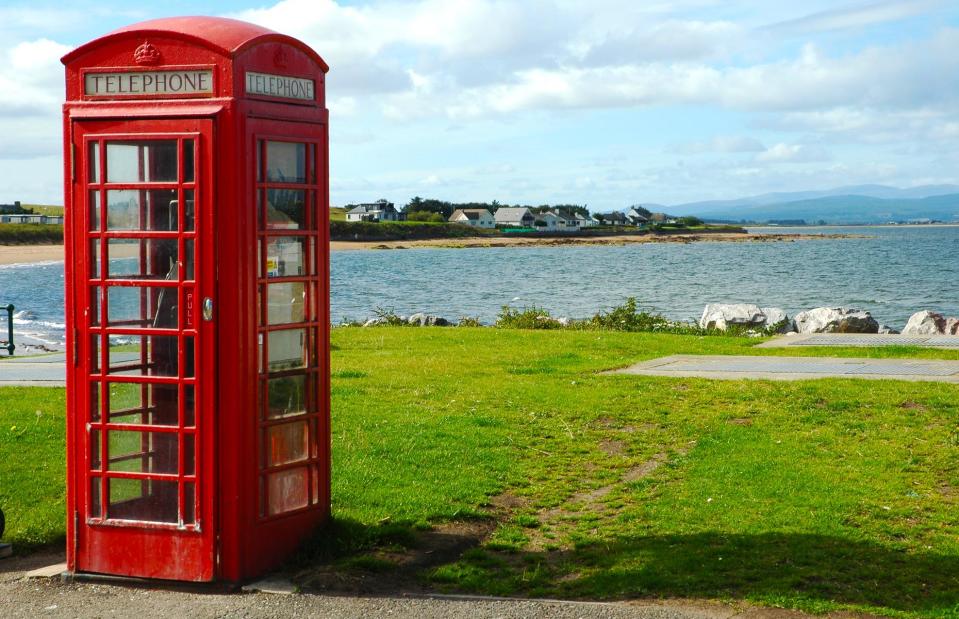
Stephen Beaumont/Shutterstock
Most wouldn’t leave the house without their mobiles but scarlet phone boxes still pepper Britain’s streets. They’re mostly for aesthetic purposes now, though some have been converted into little libraries, pop-up coffee shops or even defibrillator stations. Whatever their function, posing in front of their pillar-box doorway is a favourite tourist pastime.
The royal family

Hugo Burnand/Royal Household 2023
To those who don’t have a monarchy (and indeed to those who do), the concept of the royal family – and the extent to which some Brits revere them – can seem odd. But, it’s also the pomp and pageantry of the King and Queen, not to mention their numerous palaces and castles, that draws many visitors to these isles in the first place.
Tens of thousands of people from the UK and further afield flocked to London to celebrate the coronation of King Charles III in May 2023, while millions more watched on televisions around the world – such is the popularity of (and intrigue surrounding) the royal family. With that in mind, a visit to Britain wouldn’t be complete without a peek at Buckingham Palace in London.
Beefeaters
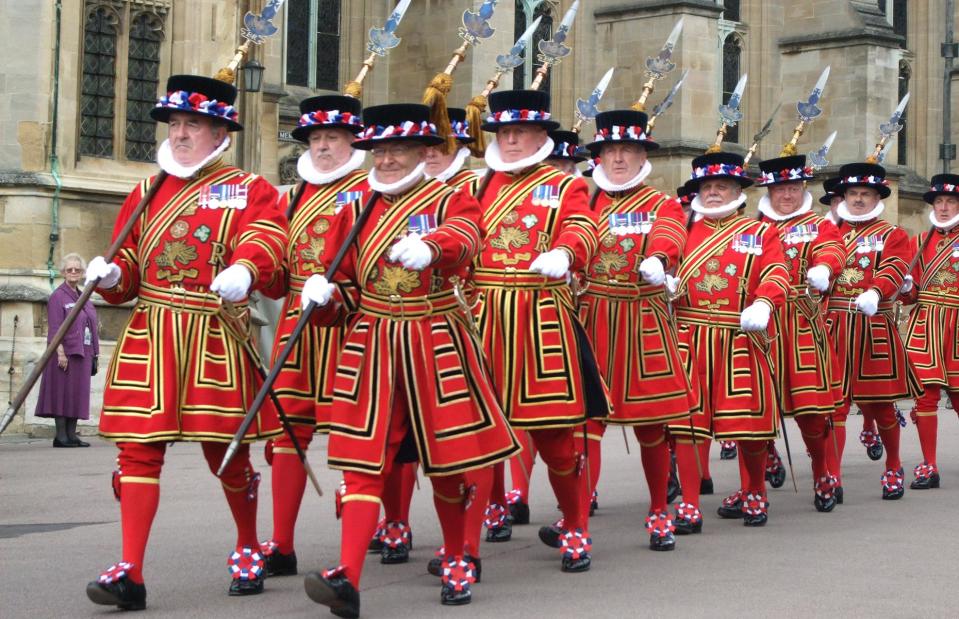
Pixabay/CC0
Who are they, why are they dressed like that and why are they called Beefeaters? The Yeomen Warders (to give them their official name) guard the Tower of London and their elaborate dress is a source of much fascination for foreign visitors. Henry VII formed the band of protectors in the 15th century and their nickname is thought to originate from the fact that their salary, in Tudor times, was paid in portions of beef.
Strange condiments
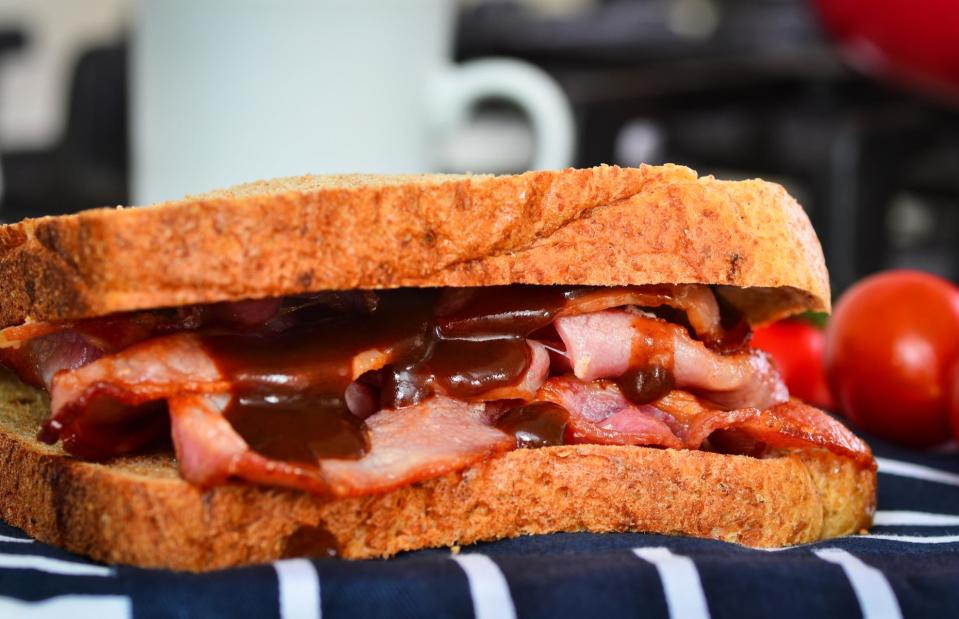
SGM/Shutterstock
While most of the world agree on ketchup, mustard and mayonnaise, there are some condiments that don’t tickle the tastebuds of Britain’s incoming visitors. One such sauce is brown sauce: a rich, tangy condiment that Brits smother over a full English or a bacon butty. Another is salad cream: a pale, gloopy condiment often spread in a ham sandwich.
Give them a chance – you might even find a new favourite.
Equally strange spreads
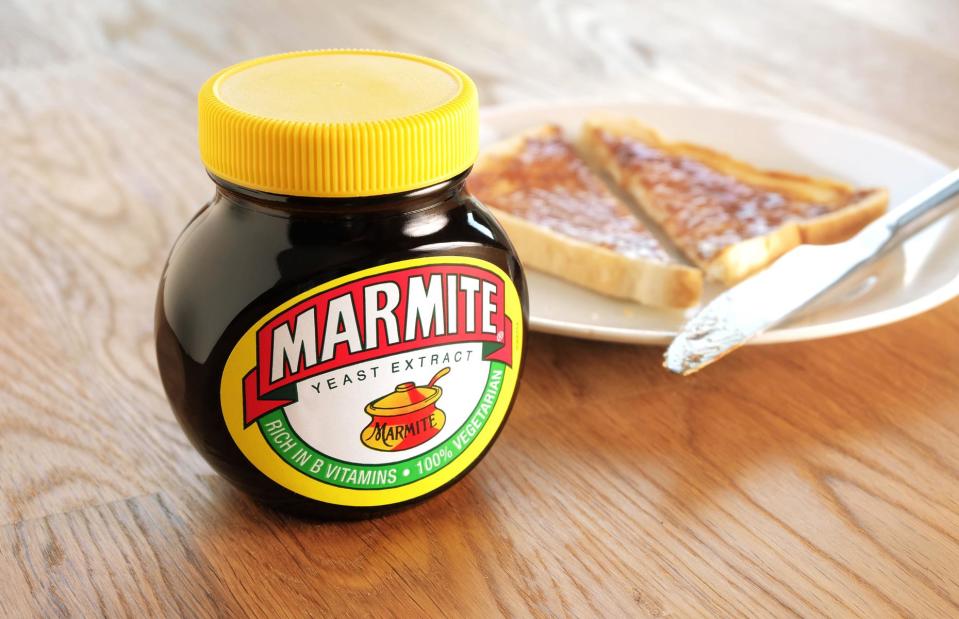
abimages/Shutterstock
If you’ve doused your dinner in bizarre British condiments, it’s time to move on to the spreads. Famously divisive, Marmite is the ultimate British spread, best smothered atop buttered toast or in a cheese sandwich. But its pungent smell and sharp, salty taste is not for everyone. It’s not hard to see why foreign visitors are baffled by its popularity.
It’s really quite small
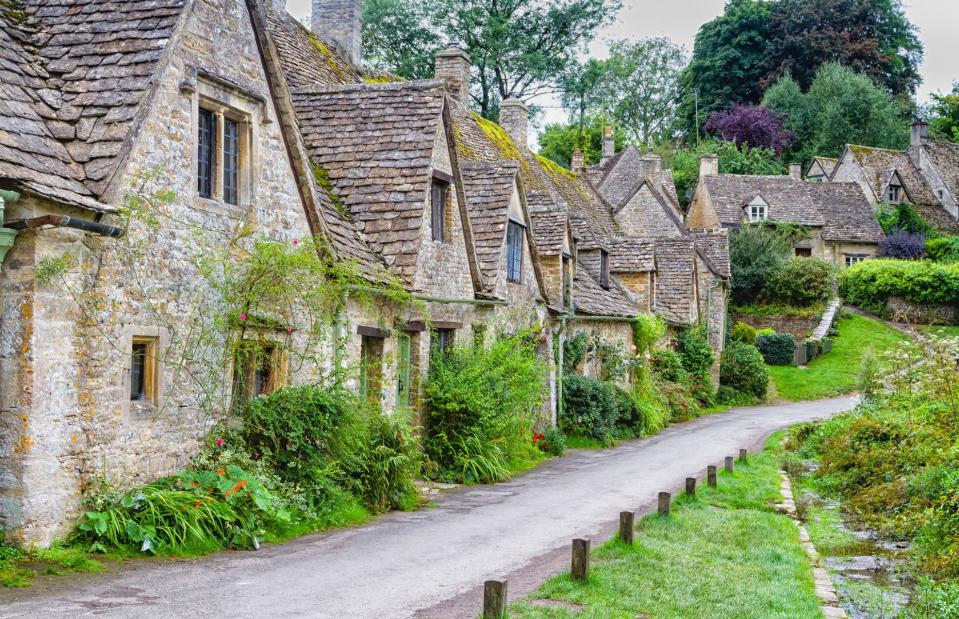
Milosz Maslanka/Shutterstock
Depending on where you’re from (particularly if you’re from the USA), Britain can seem a rather diminutive isle. The roads can be narrow, cities can be cramped and it takes less than a day to drive from England’s south coast to the very tip of Scotland.
For those used to vast interstates or near-endless national parks, things may feel a little claustrophobic. At least Britain’s relative petiteness means you can cover more ground.
The obsession with football
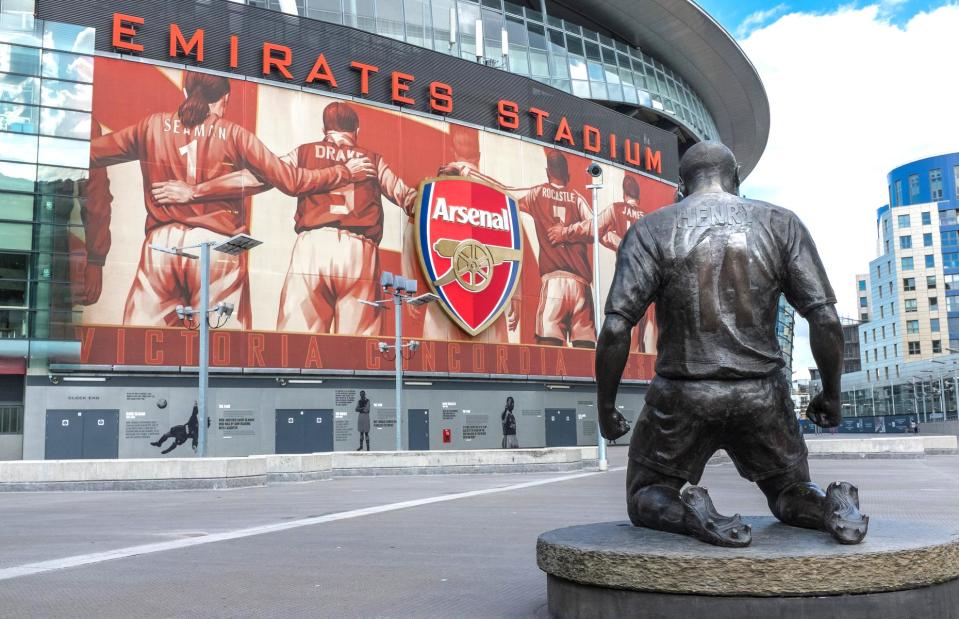
Philip Willcocks/Shutterstock
Many countries are fanatic about football, but in Britain – and in England specifically – it’s part of the national psyche. The country is home to the world’s oldest football club, Sheffield FC, and there’s an intense rivalry between opposing teams. Visitors may find the extent to which the so-called ‘Beautiful Game’ pervades society surprising, and the slew of leagues and cups impossible to fathom.
Cricket

wavebreakmedia/Shutterstock
Dating back to the 16th century, cricket was invented on British soil and the Brits have remained rather fond of it. To many, this seemingly slow-paced game of batters and bowlers played out on near-perfect greens, can appear bizarre at best and boring at worst. If you’re planning to catch a game, be aware that matches can last for days on end.
The money
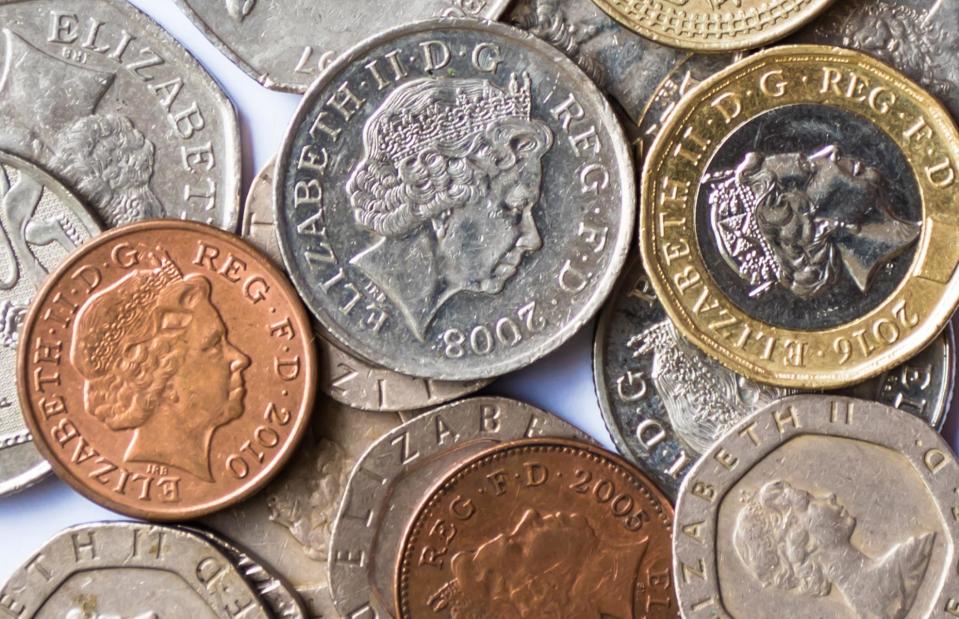
MadamKaye/Shutterstock
Most Brits pay with plastic or via their phones now but visitors can find the coins confusing – particularly when it comes to their relative size. The two-pence and ten-pence pieces are significantly larger than the pound coin, giving the incorrect impression that they're worth more. Luckily, each one is labelled with its value so that should go some way to quell any coin-related confusion.
Yorkshire puddings
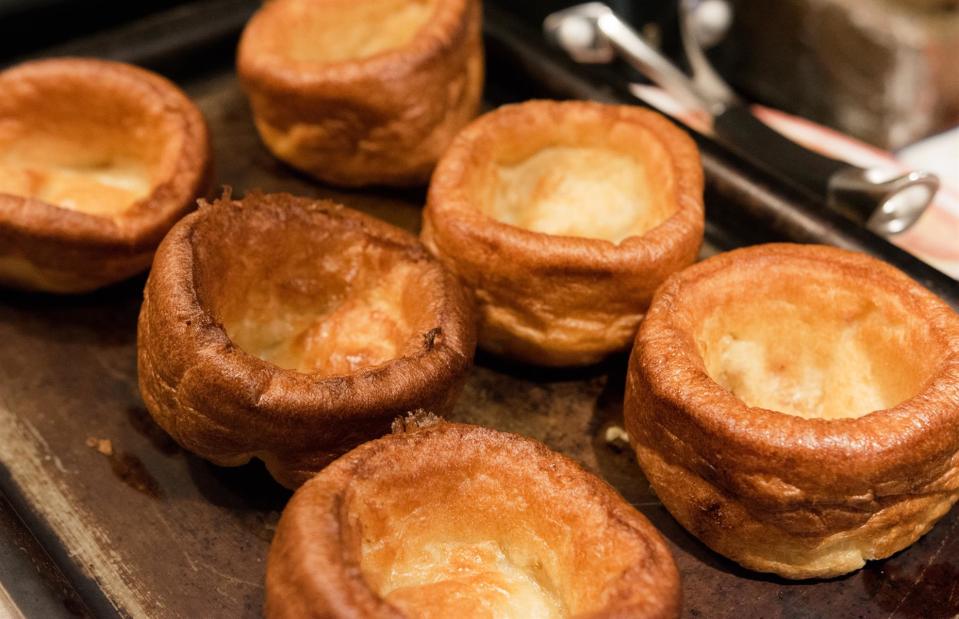
Vaternam/Shutterstock
It’s the name more than anything that throws people off with these. Why would you want dessert alongside your beef and gravy? Of course, a Yorkshire pudding isn’t sweet. The delightful crisp puff of baked batter goes perfectly with a roast dinner.
And loads of other foods too
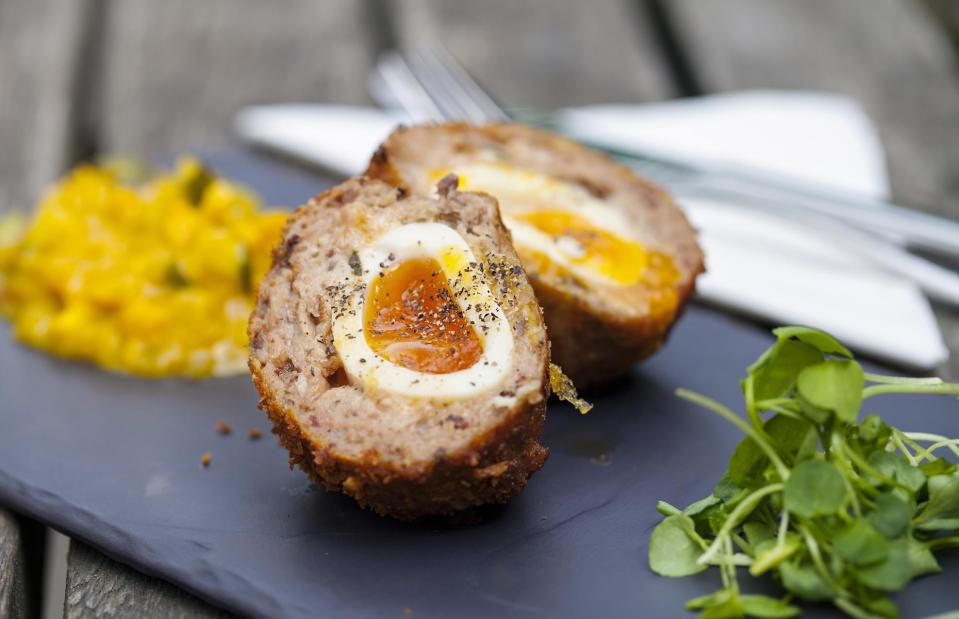
Magdanatka/Shutterstock
Mushy peas. Chips stuffed in ‘butties’ or drowned in curry sauce. Scotch eggs. Haggis. Deep-fried chocolate bars. There are a whole host of British foods that perplex tourists from the world over. But those who give them a go are often converted.
After all, what’s not to love about great hunks of fried potato encased between slices of soft, white bread, or eggs wrapped in sausage meat, breadcrumbed and deep-fried?
The accents & dialects
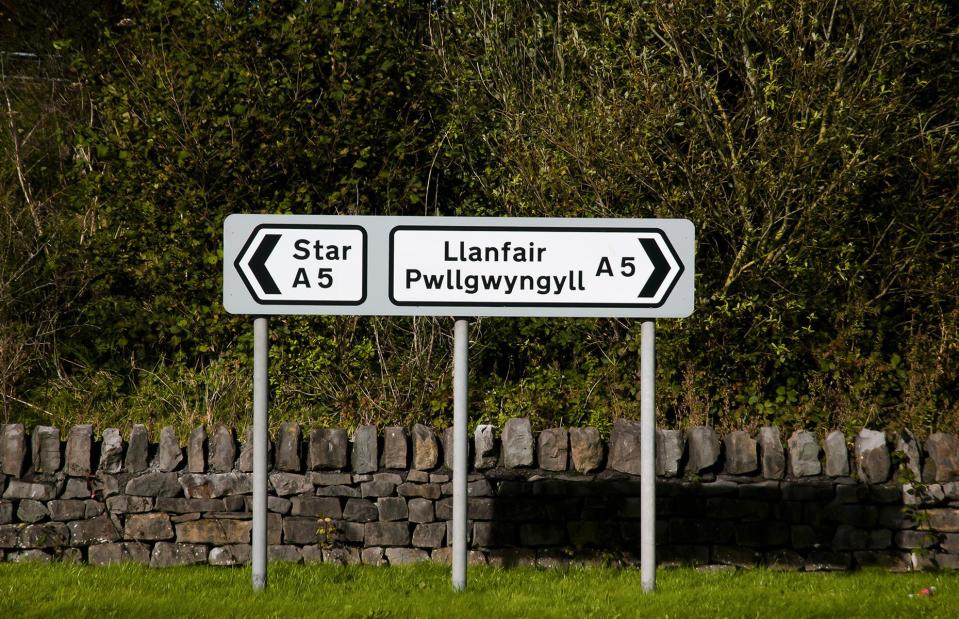
Adwo/Shutterstock
For a small country, the myriad of accents and dialects can be confusing. From the amiable burr of England’s West Country to the lyrical drawl of the Welsh, you can travel a few miles and be met with entirely different tones or languages. You’ll be called ‘pet’, ‘duck’, ‘hen’ or ‘love’ depending on your geographical location too.
Town criers

Tony Baggett/Shutterstock
Now few and far between, town criers, the most curious of British traditions, are unlikely to be spotted by incoming visitors. But if tourists do happen across these bellowing figures, they’ll be rightly dumbfounded.
Dressed in red and gold from head to toe, town criers would historically set about hollering the town news. Today, you’ll still occasionally come across them in quaint villages and remote little towns.
Chips vs crisps
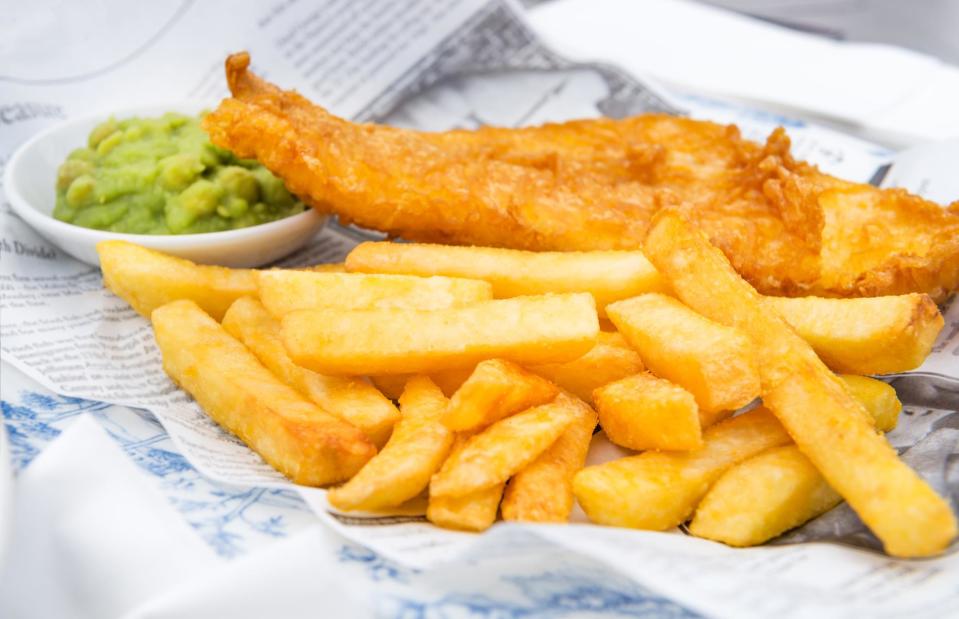
Anna Mente/Shutterstock
This one depends on where you’re coming from, but for Britons, a ‘chip’ only ever means one thing: a chunky wedge of soft, deep-fried potato. Some visitors will be surprised when their potato snack arrives, having anticipated thin, crunchy slivers. Double check with your waiter before you order.
Bonfire night
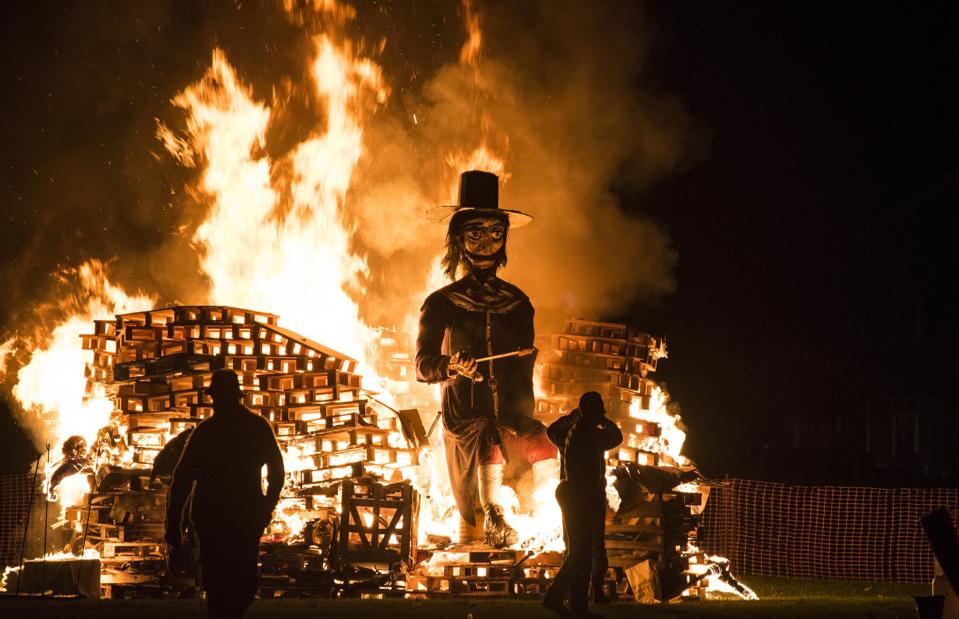
Mitotico/Shutterstock
Bonfire, or Guy Fawkes, night sees effigies of Fawkes, who famously failed to blow up parliament in 1605, burnt on a bonfire to rapturous applause. Many a Brit will merrily celebrate this event each November without pausing to consider how bizarre the whole concept is.
Visitors whose trip coincides with the festivities will be rightly amused. Head to Lewes for the best show, in which thousands of robed people take to the streets with burning crosses and effigies of politicians.
Odd festivals
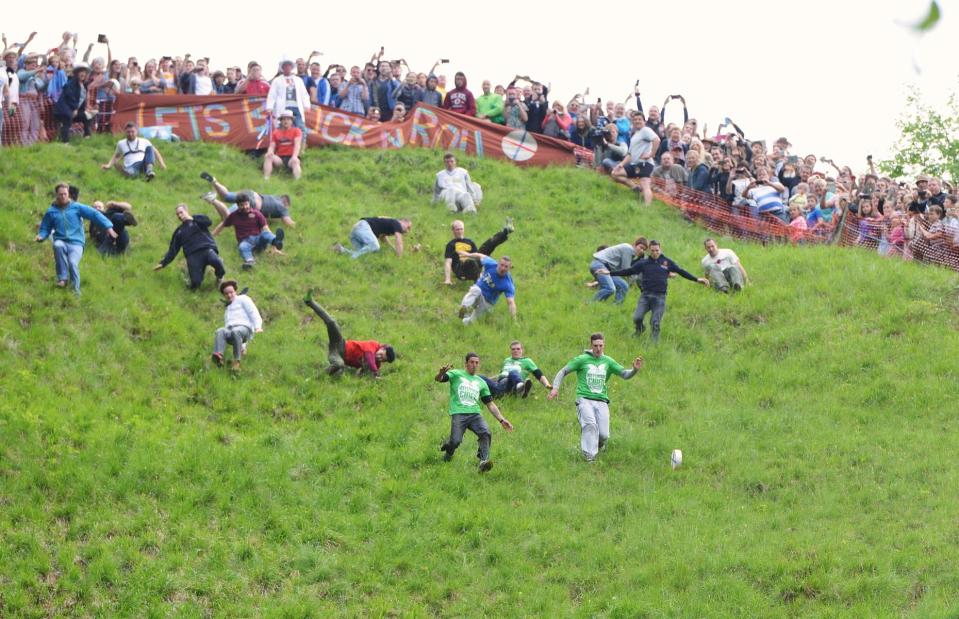
1000 words/Shutterstock
Britain has no shortage of strange fairs, fetes and festivals, and visitors keen to walk on the country’s weirder side should certainly seek them out. Perhaps the most eccentric is an annual cheese-rolling contest in Gloucestershire, in which participants hurl themselves downhill in pursuit of a wheel of cheese. Wales’ bog snorkelling championships come a close second.
British slang

kaesunza/Shutterstock
Even those visitors with a good grasp of the English language may be nonplussed by some of the strangest British slang. ‘Bob’s your uncle’ (meaning voilà) is one, then there are idioms like 'taking the biscuit' (doing something irritating) or 'donkey’s years' (a very long time) that really 'throw a spanner in the works' (complicate things).
Sarcasm

Callahan/Shutterstock
Sarcasm is the lowest form of wit, so they say, but that doesn’t put off the Brits. Notorious for their dry humour and sarcastic quips, Brits can often be hard to read, especially for foreign visitors used to saying what they mean, and meaning what they say.
Embrace the quirks and explore the best of Britain

Helen Hotson/Shutterstock
There's no shortage of idiosyncrasies in Britain. But once you've understood the quirks, you can fully enjoy what these beautiful isles have to offer. For everything you need to know, read our handy guide to the best of Britain.
Now take a look at The Crown's glamorous filming locations that stood in for royal palaces


